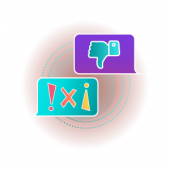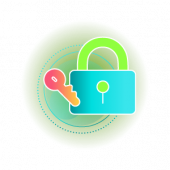How do I start a conversation with my children about Instagram?
Ensuring the Use of Netiquette in My Online Classroom

Students are spending more time on the internet today, whether for learning or for social networking. Educators might not be used to guide their students through netiquette, probably because the students are too young or their students have little knowledge about how to behave when they’re online.
So it is very important to keep the rules of good online behavior in mind and to ensure they are firmly established whether in terms of your interaction with your students or in terms of the students interacting through messaging and classroom activities shared between them, in order to create an appealing educational environment that would provide great benefits in terms of education and morality, and so that such benefits extend beyond learning platforms to include social media, instant messaging apps, and other online applications.
So, how can I teach my students how to use netiquette when they go online?
Provide a Safe Space
You probably use one or more applications for video conferencing with your students where you meet in an online classroom to give lectures, exchange questions and answers, and follow up on activities and homework, while students can also communicate with each other exactly as they would do in a real school setting. In such conditions, rules of conduct are often disregarded and students sometimes cross the line or get bullied by others. This could create an inappropriate environment that could impede the learning process. So, you need to watch your student relationships, and when you assign a workgroup, make sure the students are communicating clearly to avoid any misunderstanding and are successfully working together.
In addition, don’t forget to intervene to stop any inappropriate behavior, using a nice educational approach that would spare anyone involved any embarrassment.
Tell Them to Be Nice
Remind your students that it is easy to say hurtful or inappropriate things to anyone when you’re not face to face with them, and this is one major reason why others feel hurt online. So, always remind your students that their classmates and their teachers are real people that can be affected by what they read and hear; tell them to be nice and respectful to their teachers and peers, for example, by addressing their teachers online with the utmost respect, to avoid calling their peers by bad nicknames and to take others’ feelings and opinions into consideration, even if they don’t agree with. If, in reality, they aren’t allowed to say bad things to someone in person, this doesn’t mean they can do it from behind a screen.
Private Chat Rooms
Educators need to be strict in controlling the private chat rooms through its settings. While these private channels allow students to communicate with each other and ask questions about what they have learned, they can be also used to engage in discussions beyond education. So, make sure they are used appropriately, otherwise, they would become a source of distraction or even bullying.
Writing etiquette
It is useful for educators to teach their students about appropriate online writing on online learning platforms or on social media such as using a misspelling-free, clear and concise language; taking important posts seriously; proofreading and editing texts before hitting the send button; checking the reliability of any sources or quote referenced and avoiding “copy and paste” or sharing unverified information. Moreover, when making comments on a specific topic, students must show respect and avoid hurting or bullying others and not go off-topic.
Tell Them to Be Cautious
Learning online may require sharing some personal information. So, it is important to tell the students to limit their information sharing and to share with caution when there is a need to provide information, particularly when it comes to sensitive information and personal data, geographic location, and any information about their classmates and school, especially when communicating with a stranger or visiting service providers’ websites that could be showing fake ads.
Jokes and Mockery
Many students enjoy joking and laughing. As an educator, you can tolerate it. However, during online learning and online participation, make sure this is not rudeness, but just a good laugh. For example, funny emojis, smileys, and some voice notes might be a form of bullying, verbal abuse, or mockery in disguise, and would be misunderstood by others. Therefore, it is always recommended to educate students about the importance of showing respect for other's feelings and give them examples as to the kind of harmless jokes that can be made, and you can also share written or illustrated tips and helpful resources with your students by e-mail.
Stay on topic
Explain to your student the following: “when you’re having a discussion with your students, it is very important that everyone stays on topic, out of respect and appreciation not only for you but also for the other classmates.”
Also, try to control the discussions so that no one goes off-topic, especially when a large number of students are participating in the online class. Deviation leads to a waste of precious time or allows for side discussions that you won’t be able to have full control over.
Stop bullying / Cyberbullying
Bullying is common among students in educational environments, whether online or across schools. Therefore, it is important to warn students against such abhorred acts, and encourage them not to bully their peers based on their looks or physical appearance, not only out of courtesy but also because this is what moral values are about.
It is also crucial to point out the negative and dangerous effects bullying has on physical and mental health. As part of your guidance on this issue, you should draw attention to acts or words students use or exchange for fun in online communication and take serious efforts to put an end to it.
In addition, you can make a point of praising the bullied student in front of his peers to reinforce his self-esteem. Sharing tips and recommendations by email or providing them during online learning is also no less important.
@2x.png)





















